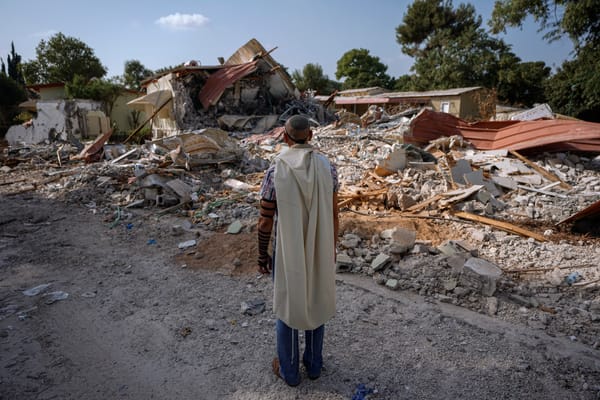So many graves to fill
O love, aren’t you tired yet?
—Leonard Cohen
The future of the Israeli-Palestinian conflict will be determined by the larger human question of whether wounded people can think clearly. Everything depends upon the possibility of post-traumatic rationality. But can there be such a thing? It is incontrovertible that every Israeli—man, woman, and child—was genuinely traumatized on Oct. 7, and that trauma was an appropriate response to the butchery of Hamas and to the breakdown at every level, from the conceptual to the operational, of Israel’s defenses; and the same needs to be said about the men, women, and children of Gaza, who now wander through a badlands of ruins in a daze of loss and pain. The morrow of catastrophe always gives pride of place to psychology and to the reign of feelings. This is perfectly understandable, but it is also a formula for the perpetuation of the mentalities that prepared or perpetrated the violence. Amid the evidence of their own failure, in the rubble of earlier certainties, those mentalities must be challenged. No atrocity ever softened or refined or complicated anybody’s feelings. An existential crisis demands a transcendence of the merely psychological.
This is the crushing corollary of the catastrophe: At the very moment when Israelis and Palestinians most need to keep a level head—to prefer the rational assessment of their long-term interests and obligations to the enthusiasm for war and the cultivation of hatred—such lucidity is least available to them. It has been sabotaged by the very occasion that requires it. This is one of the many recent reasons for heartbreak. On the Israeli side, the justice of a military response to the Hamas pogrom notwithstanding, it does them no good to confirm themselves in their old habit of militarizing the Palestinian problem, when, in fact, it is supremely a political problem. The Israel Defense Forces cannot provide an answer to the Palestinian question, though the military can make an answer more distant; the IDF cannot destroy Hamas (and Hezbollah) once and for all, though it can—and should—cripple them severely. But to speak of politics and diplomacy now, to raise the almost hallucinatory prospects of peaceful reconciliation, is to offend a national consensus, to become an outcast.
